Are Vinyls Hard to Make?
In a world where digital music reigns supreme, the resurgence of vinyl records is a testament to the enduring appeal of physical media. There's something inherently captivating about the tactile experience of placing a record on a turntable and hearing the rich, warm sound that emanates from its grooves. But behind the allure of vinyl lies a complex and often misunderstood process of production. Just how difficult is it to bring these iconic discs to life?
Vinyl Record Pressing – A Long and Laborious (and Expensive) Process
The journey of a vinyl record begins long before it reaches the shelves of a record store or the collection of a music enthusiast. It starts with the pressing plant, where raw materials are transformed into playable records through a meticulous process known as vinyl pressing. However, this process is not without its challenges.
Vinyl pressing plants have long faced capacity constraints, struggling to keep up with the resurgence in demand for vinyl records. This capacity lag has resulted in lengthy turnaround times and minimum order requirements that can be prohibitive for independent musicians and small-scale artists.
Minimum order quantities are a significant hurdle for many aspiring vinyl producers. While some pressing plants may require a minimum order of 100 copies, others enforce even larger minimums, such as 250 or more. These high minimums pose a financial risk for artists, especially those operating on a tight budget or looking to test the waters of vinyl production without committing to a large order.
Furthermore, navigating the intricacies of the vinyl pressing process can be daunting for independent artists. From mastering and formatting audio files to coordinating artwork and packaging, there are numerous logistical challenges to overcome. While labels can help streamline the process on behalf of artists, securing label representation is a daunting task in itself, often requiring extensive networking and industry connections.
In essence, getting a vinyl record pressed through traditional channels is a long, laborious, and expensive process that remains out of reach for many artists and musicians.
Custom Vinyl Records – A Much Faster, Cheaper Alternative (At Smaller Volumes)
Fortunately, advancements in technology have paved the way for a more accessible alternative: custom vinyl records. Unlike traditional pressing, which requires large minimum orders, custom vinyl records offer a more flexible and affordable option for artists and enthusiasts alike.
Custom vinyl records are particularly well-suited for those who only require a limited number of copies of their music. Whether it's a small batch for a local gig or a personalized gift for a friend, custom vinyl records provide a scalable solution that meets the needs of individual creators.
One of the key advantages of custom vinyl records is their accessibility. While the per-unit cost may be higher than traditional pressed records due to the real-time cutting process, the overall investment is significantly lower. With prices typically ranging from $29.99 to $149.99 per record, custom vinyl offers a cost-effective option for artists looking to bring their music to life on vinyl without breaking the bank.
Companies like Freestyle Vinyl have emerged as leaders in the custom vinyl record industry, offering streamlined production processes and quick turnaround times. With Freestyle Vinyl, the process of creating a custom vinyl record is as simple as uploading audio files, setting a playlist, and submitting for production. Within three weeks, customers receive their personalized records, ready to be enjoyed on their turntable.
Freestyle Vinyl – A Custom Vinyl Record Industry Leader
Founded on the principles of accessibility and innovation, Freestyle Vinyl has revolutionized the custom vinyl record industry. With a commitment to quality and customer satisfaction, Freestyle Vinyl offers a seamless production experience that puts the power of vinyl creation in the hands of artists and enthusiasts alike.
The process begins with the customer uploading their audio files to the Freestyle Vinyl website. From there, they have the freedom to customize their record, selecting everything from track order to artwork and packaging options. Once the order is submitted, Freestyle Vinyl's team of skilled technicians goes to work, cutting each record with precision and care.
Unlike traditional pressing, which requires extensive setup and production time, Freestyle Vinyl's cutting-edge technology allows for quick turnaround times without sacrificing quality. Within three weeks of placing their order, customers receive their custom vinyl records, ready to be enjoyed or shared with friends and fans.
Conclusion
In conclusion, the process of making vinyl records is a complex and multi-faceted endeavor that requires careful planning, coordination, and expertise. While traditional vinyl pressing remains a viable option for larger-scale production, it can be cost-prohibitive and logistically challenging for independent artists and small-scale creators.
Custom vinyl records offer a more accessible and affordable alternative, allowing artists to bring their music to life on vinyl without the constraints of large minimum orders or expensive production costs. With companies like Freestyle Vinyl leading the way, the dream of holding a custom vinyl record in your hands is more attainable than ever before.
Whether you're a musician looking to share your music in a tangible format or an enthusiast seeking a unique audio experience, custom vinyl records provide a solution that's both accessible and authentic. As the vinyl revival continues to gain momentum, the future of vinyl production looks brighter than ever, thanks to innovative technologies and forward-thinking companies like Freestyle Vinyl.




